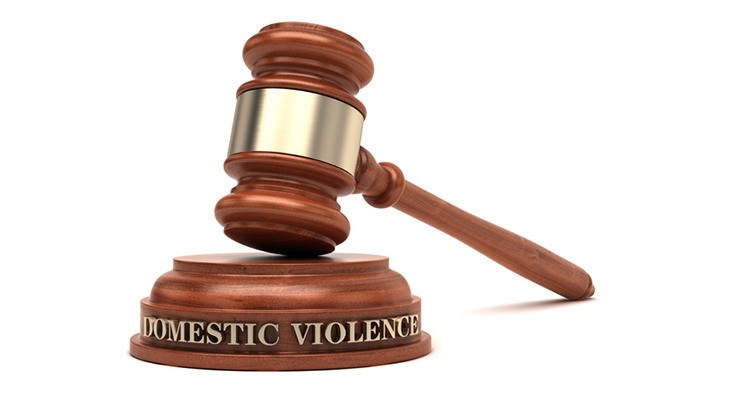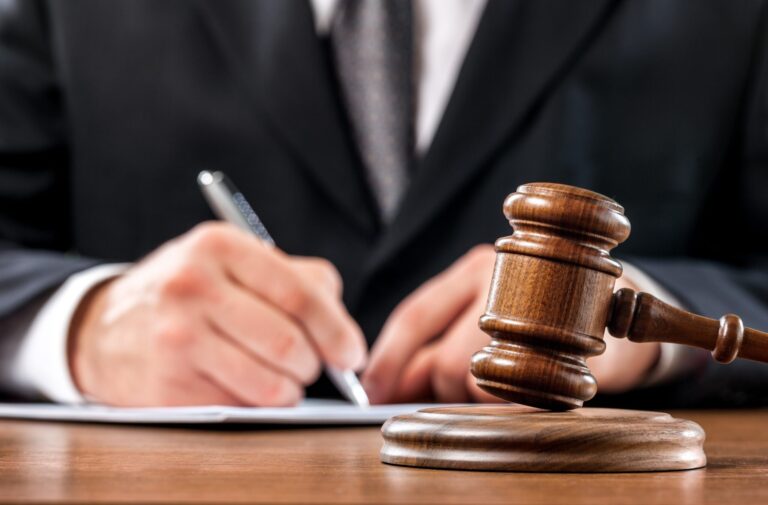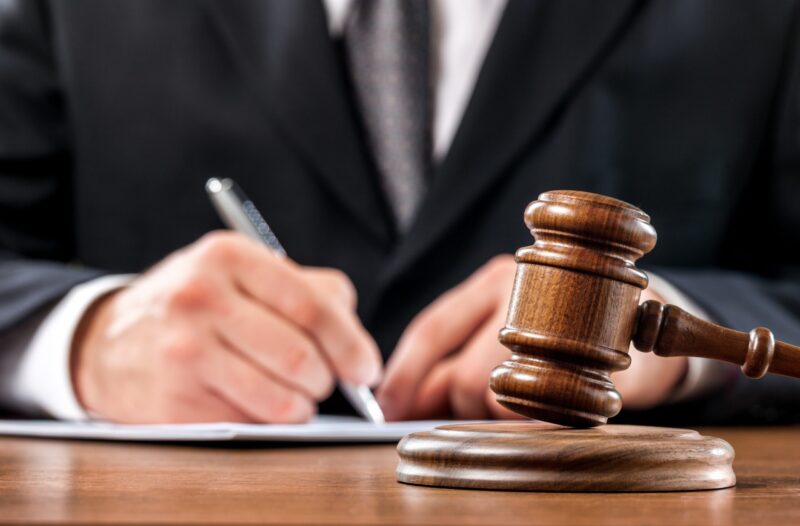Plumbing maintenance is a crucial aspect of homeownership that should never be overlooked. Your home’s plumbing system is like the circulatory system of your house, ensuring water flows smoothly to various fixtures. Neglecting it can lead to costly repairs and inconveniences. In this blog post, we’ll explore essential tips for homeowners to maintain their plumbing system effectively. We’ll tackle each aspect head-on, providing valuable insights without delving into unnecessary details.
Regular Inspections Keep Troubles at Bay
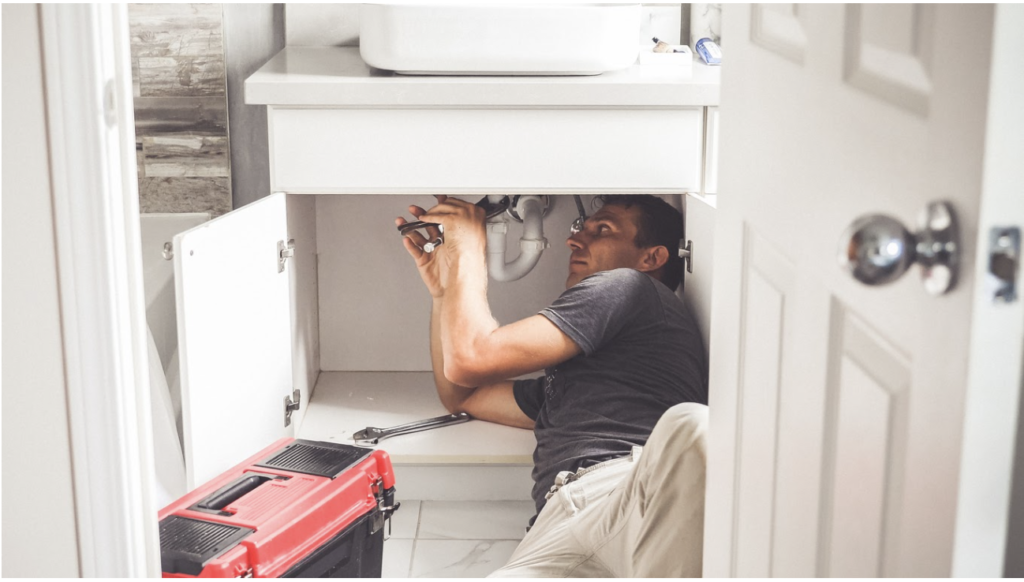
The first step in preventative plumbing maintenance is regular inspections. You don’t need to be a professional plumber to identify potential issues. Simply keep an eye out for any visible problems. Check for leaks, drips, or puddles around fixtures, pipes, and appliances. Inspect for rust, corrosion, or mineral buildup on faucets and showerheads. Ensure that toilets flush correctly and that there are no unusual sounds. By addressing minor issues early on, you can prevent them from becoming major headaches.
Guard Against Leaky Faucets and Dripping Drains
Leaky faucets and dripping drains may appear trivial, but they spell trouble. These seemingly minor issues can result in wasteful water consumption and inflated bills. When you spot a leak, don’t procrastinate; take immediate action. Fortunately, resolving a leaky faucet or drain is usually a straightforward DIY task, requiring only basic tools. By replacing worn-out washers or seals, you can swiftly halt the drip and ensure long-term cost savings.
Leaving leaky fixtures unattended can lead to a significant increase in your water bill. In the United States alone, it’s estimated that household leaks can waste over a trillion gallons of water annually. That’s equivalent to the annual household water use of more than 11 million homes. Fixing leaks promptly not only conserves a precious resource but also keeps your finances in check.
Beware of Clogged Drains and Toilets
Clogged drains and toilets rank among the most common and disruptive plumbing problems. These nuisances can bring your daily routine to a screeching halt. Prevention is key in this scenario. Take care to flush only toilet paper down the toilet, as other items can cause blockages. In sinks and showers, utilize drain strainers to capture hair and debris before they become obstructions.
When a clog inevitably occurs, swift action is paramount. Armed with a plunger or drain snake, you can often resolve the issue without professional assistance. However, be cautious with chemical drain cleaners, which should be a last resort. These harsh chemicals may provide a quick fix, but they can also inflict long-term damage on your pipes, potentially resulting in more significant plumbing woes down the road. If you can’t handle the whole issue on your own visit www.ppplumbers.com.au instead.
Protect Your Pipes from Freezing in Winter
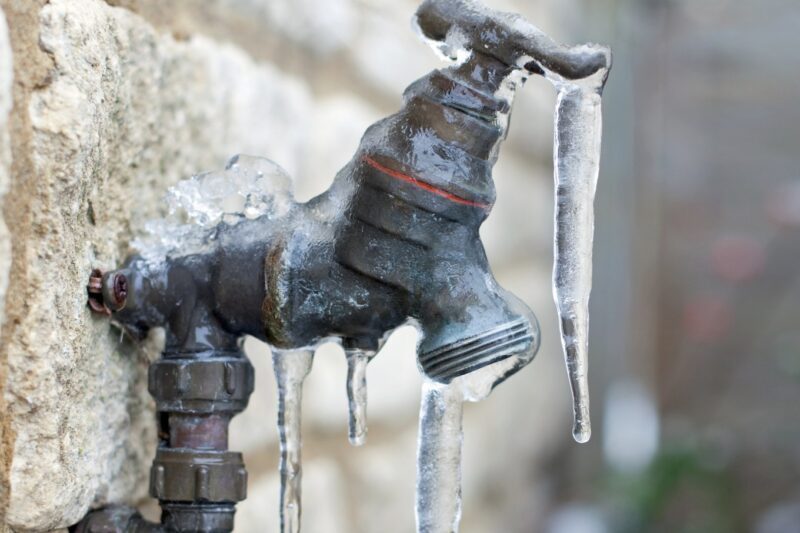
Winter can be harsh on your plumbing system, especially if you live in a cold climate. Frozen pipes can burst and cause extensive water damage. To prevent this, insulate exposed pipes and disconnect garden hoses before winter sets in. If temperatures drop drastically, allow faucets to drip slowly to keep water moving and prevent freezing. Being proactive in winter can save you from costly pipe repairs.
Maintain Your Water Heater for Efficient Functioning
Your water heater plays a vital role in providing hot water for showers, laundry, and dishes. To ensure it operates efficiently, flush the tank annually to remove sediment buildup. Check the temperature setting to prevent scalding and save energy. If you notice any unusual noises or a decrease in hot water supply, call a professional to inspect and service your water heater.
The Importance of Properly Functioning Sump Pumps
If your home has a basement, a properly functioning sump pump is essential to prevent flooding during heavy rain or snowmelt. Test your sump pump regularly by pouring water into the sump pit. Ensure the float switch activates the pump, and the water is pumped out efficiently. Replace the pump if it shows signs of wear or fails the test, as a malfunctioning sump pump can lead to costly water damage.
Say No to Plumbing Fixture Neglect
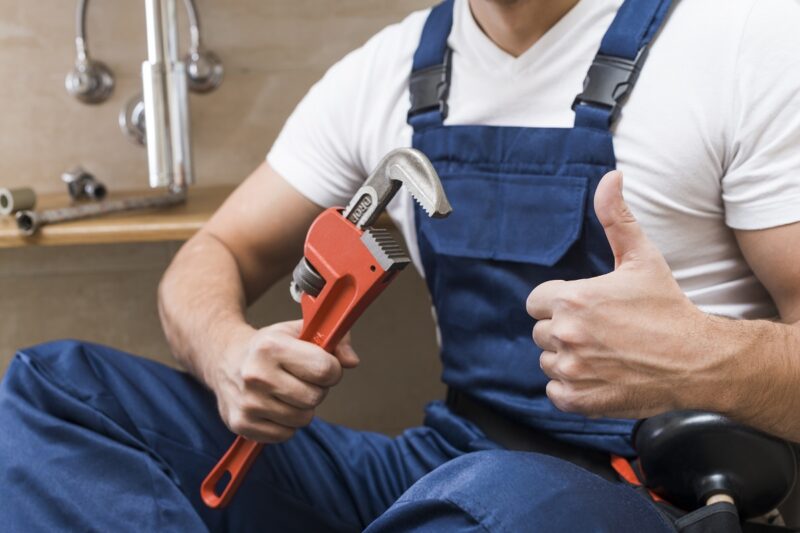
Plumbing fixtures, including faucets, showerheads, and toilets, require attention too. Periodically clean and descale them to maintain water pressure and quality. Replace washers or cartridges in faucets if they start leaking. Modern low-flow fixtures not only conserve water but also reduce your utility bills.
Watch Out for Hidden Water Leaks
Not all leaks are immediately visible. Hidden water leaks can occur behind walls or under the floor, leading to structural damage and mold growth. Pay attention to any unexplained increases in your water bill, as this could be a sign of a hidden leak. If you suspect a problem, call a professional plumber to locate and repair the leak.
Shield Your Home from Sewer Line Nightmares
Sewer line issues can be messy and unpleasant. To avoid sewer line nightmares, be cautious about what you flush down the toilet and pour down the drain. Avoid flushing wipes, sanitary products, or grease, as they can clog the sewer line. If you notice sewer odors or slow drains, it’s crucial to address the problem promptly to prevent backups.
Handle Garbage Disposals with Care
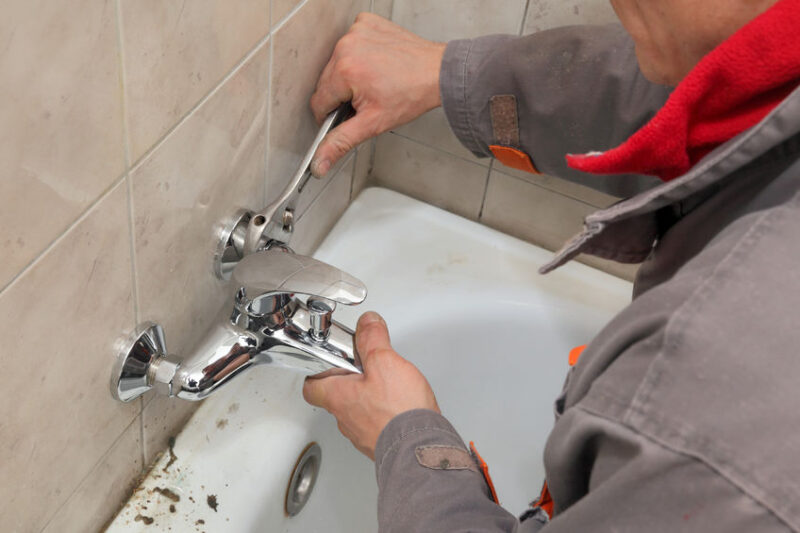
Garbage disposals can make kitchen cleanup more convenient, but they can also be a source of plumbing problems. Avoid putting fibrous or hard materials like potato peels, eggshells, or coffee grounds into the disposal. Run cold water while using it to help flush debris down the drain. If the disposal gets jammed, turn it off and use a wrench to manually rotate the blades to clear the blockage.
Educate Yourself on Shut-off Valves
In case of a plumbing emergency, knowing how to shut off the water supply to your home is crucial. Locate the main shut-off valve and individual shut-off valves for fixtures and appliances. Label them if necessary, so you can quickly turn off the water in case of a leak or burst pipe. Being prepared can minimize water damage and the associated repair costs.
Seek Professional Help When Necessary
While many plumbing maintenance tasks can be DIY, there are times when professional help is necessary. Don’t hesitate to call a licensed plumber for complex issues, major repairs, or installations. Attempting advanced plumbing work without the right expertise can lead to costly mistakes.
Summary
Preventive plumbing maintenance is a responsibility that comes with homeownership. Regular inspections, prompt repairs, and awareness of potential issues are essential to keep your plumbing system in top shape. By following these tips and seeking professional help when needed, you can avoid plumbing disasters and ensure a smooth and trouble-free plumbing experience in your home.


